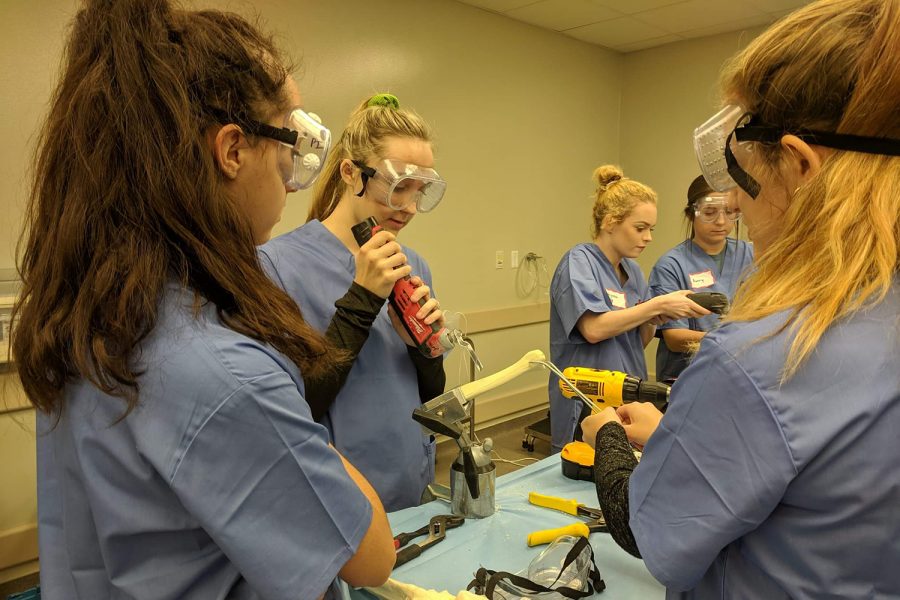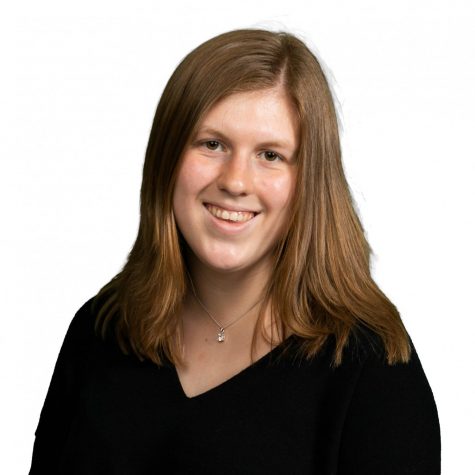Taking initiative
Perry Outreach encourages high school girls to find careers in medicine and engineering
November 7, 2018
On various weekends, all across the country, the Perry Initiative Outreach Program brings in aspiring medical students to participate in a day of presentations and hands-on learning experiences. The program partners with colleges, medical centers and high schools to host these events and draw high school girls towards a future in engineering and medicine.
This organization was founded by a female orthopaedic surgeon and a female mechanical engineer who noticed a deficiency of women in engineering and certain medical fields. They created a single event in San Francisco for high school girls in that area. In only a year, the program had spread nationwide. Today, the Perry Initiative runs over 40 one-day programs nationwide and has held over 260 outreach events.
On Nov. 3, five students from Texas High School, at the recommendation of chemistry and biology teacher Jessica Sharp, attended the Perry Outreach Program at its location in Little Rock, Arkansas. The event was hosted at the University of Arkansas for Medical Sciences Jackson T. Stephens Spine and Neuroscience Institute.
Throughout the day, these students listened to presentations by biomechanical engineers and orthopaedic surgeons about the importance of women in the predominantly male professions. They were also able to perform simulated orthopaedic surgeries, such as ACL reconstructions and fracture repairs under the instruction of practicing surgeons.
“I liked learning how to fix bones and fractures,” sophomore Johnni Hueter said. “I really enjoyed practicing on real world simulations.”
The women who attended were given the opportunity to make connections with people in fields of both engineering and medicine. However, these students were also able to network among themselves and find people who shared common hopes for their futures.
“I think that talking to someone else that was interested in the same things helped me understand what I want to do when I grow up,” Hueter said.
At the end of the day, the parents were brought into the laboratory to watch the students as they finished up their surgeries. The surgeons, engineers and volunteers opened up a panel for any students or parents with questions or concerns about the future the program had been encouraging them to pursue. This time was used to quell any doubts that had been growing in the students’ or parents’ minds about what it takes to be either a surgeon or an engineer.
“I know that the panel at the end helped my mom because she didn’t quite know how to get us to where we needed to be to become doctors,” Hueter said. “The answers the panel gave us showed my mom and I that we don’t always have to be crazy busy. We have time for things outside of just school and college.”















